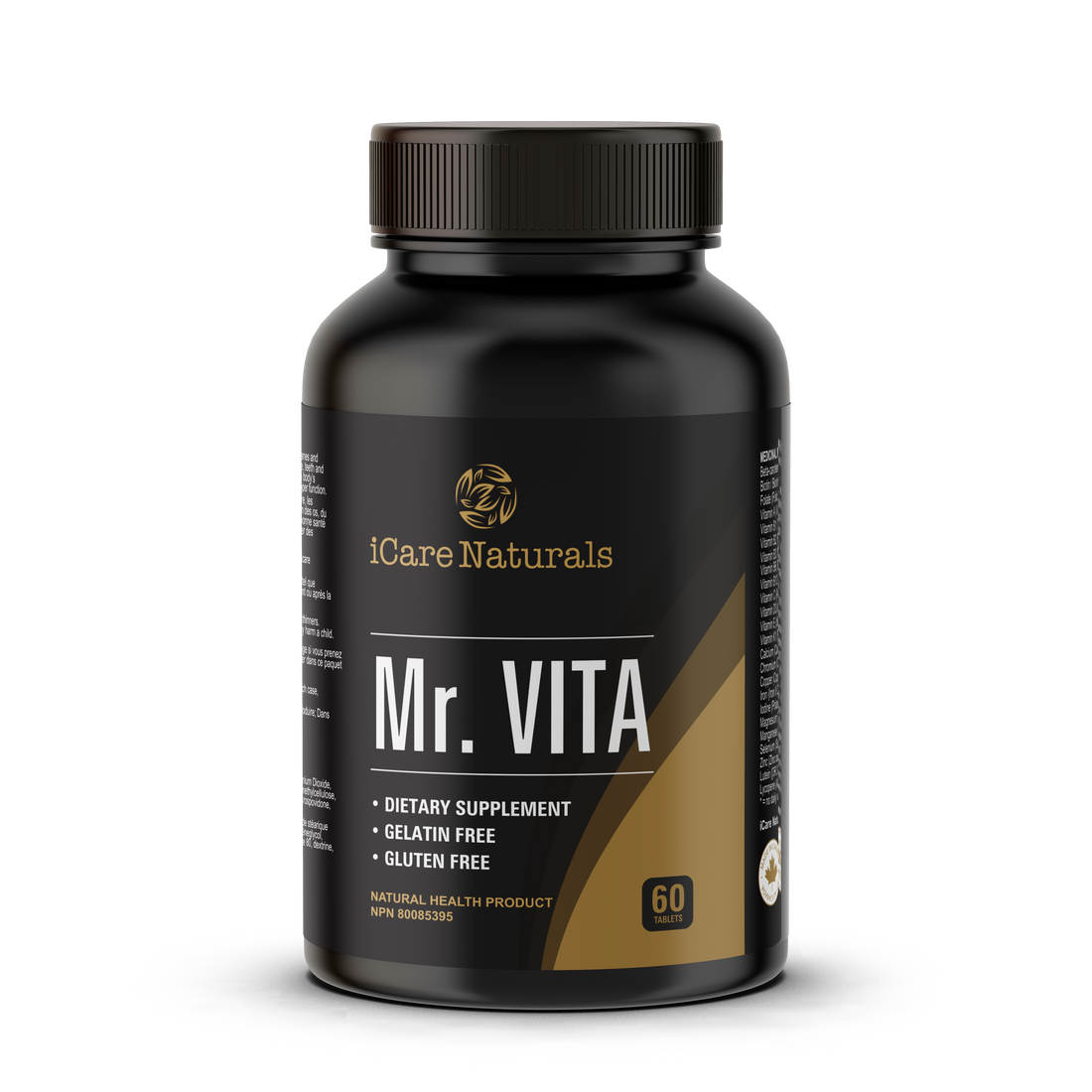The pain and incapacity that may result from these disorders have devastating effects on people's lives. More than 70% of fatalities worldwide are attributable to chronic illnesses, making them a top priority for public health agencies. Heart disease, diabetes, cancer, and chronic obstructive pulmonary disease are just a few examples of the most prevalent chronic illnesses today (COPD).
The role of nutrition in managing chronic diseases
The role of nutrition in managing chronic diseases cannot be overstated. Proper nutrition can help improve symptoms, slow disease progression, and even reduce the risk of complications. In addition, eating a balanced diet rich in essential nutrients can help improve overall health and well-being, which is particularly important for individuals with chronic diseases.
The five most effective multivitamins for chronic diseases
- Vitamin D
Vitamin D is an important and basic nutrient that is involved in many bodily functions, including the regulation of calcium and phosphorus levels. Deficiencies in vitamin D have been linked to chronic diseases such as osteoporosis, diabetes, and cardiovascular disease. Vitamin D supplements can help correct deficiencies and may provide additional health benefits.
- Vitamin B Complex
Vitamin B complex belongs to a group of eight essential B vitamins, including B1 (thiamine), B2 (riboflavin), B3 (niacin), B5 (pantothenic acid), B6 (pyridoxine), B7 (biotin), B9 (folic acid), and B12 (cobalamin). These vitamins play a crucial role in energy metabolism, nerve function, and cell growth and division. A deficiency in any of these vitamins can result in various health problems, including anemia, nerve damage, and fatigue.
- Vitamin C
Vitamin C is considered a strong antioxidant that can actually aid in protecting the body from oxidative stress and inflammation. It is also essential for wound healing, skin health, and immune function. Vitamin C deficiencies have been linked to chronic diseases such as cardiovascular disease and cancer. Vitamin C supplements can help prevent and treat these conditions.
- Omega-3 Fatty Acids
Chronic illness patients, including those with cardiovascular disease, rheumatoid arthritis, and depression, may also benefit from omega-3 fatty acids. The health advantages of omega-3 supplements go beyond just making up for a lack. Chronic illness patients, including those with cardiovascular disease, rheumatoid arthritis, and depression, may also benefit from omega-3 fatty acids. Omega-3 supplements can help correct deficiencies and provide additional health benefits.
Its also a type of polyunsaturated fat that is important for overall health. They are essential fatty acids, meaning that the body cannot produce them, and they must be obtained from the diet. Studies have demonstrated that omega-3 fatty acids improve heart health and lower the risk of cardiovascular disease and stroke.
Fatty fish like salmon, flaxseeds, chia seeds, and walnuts are all excellent providers of omega-3 fatty acids. Omega-3 fatty acids should be consumed at a daily dosage of between 250 and 500 milligrams.
- Calcium
Calcium is an essential and basic mineral that is crucial for strong bones, teeth, and muscles. It is also important for nerve and muscle function and blood clotting. Chronic diseases such as osteoporosis and cardiovascular disease can increase the risk of calcium deficiencies. Calcium supplements can help prevent and treat these deficiencies and may provide additional health benefits.
It's a mineral required for lots of different bodily functions. Aside from its obvious importance in skeletal development and maintenance, calcium also plays a major role in controlling heart rate, facilitating muscular contractions, and facilitating the transmission of nerve impulses. Dairy products, leafy green vegetables, and fortified meals may all contribute to an adult's daily calcium requirement of 1000-1300mg.

Tips for selecting and using multivitamins for chronic disease management
Here are some tips for selecting and using multivitamins for chronic disease management:
- Consult with a healthcare provider: Before starting any new supplement regimen, it is important to consult with a healthcare provider, especially if you have a chronic disease. They can help determine if a multivitamin is appropriate for your specific needs and recommend a specific brand or type.
- Choose a high-quality brand: Look for a brand that is reputable and has undergone third-party testing for purity and potency. It is also a good idea to choose a brand that uses ingredients that are easily absorbable by the body.
- Read the label carefully: Pay attention to the dose of each nutrient and ensure that it aligns with the recommended daily intake. Also, check for any potential allergens or ingredients that could interact with any medications you are taking.
- Start with a low dose: If you are just starting to take a multivitamin, it is best to start with a lower dose and gradually increase to the recommended dose. This can help prevent any potential side effects or interactions.
- Take at the right time: It is best to take a multivitamin with a meal that contains some fat, as this can improve absorption. Additionally, some nutrients can interfere with others, so it is important to follow the instructions on the label for the best results.
- Do not stop eating healthily; multivitamins are meant to augment, not replace, a healthy diet. Eating a diet rich in different types of fruits, vegetables, whole grains, and lean protein will help you obtain all the nutrients your body needs.
Consider the specific needs of your chronic disease
Different chronic diseases may have different nutritional requirements. For example, individuals with cardiovascular disease may benefit from omega-3 fatty acid supplements, while those with osteoporosis may benefit from calcium supplements. It is important to consider the specific needs of your chronic disease when selecting a multivitamin.










